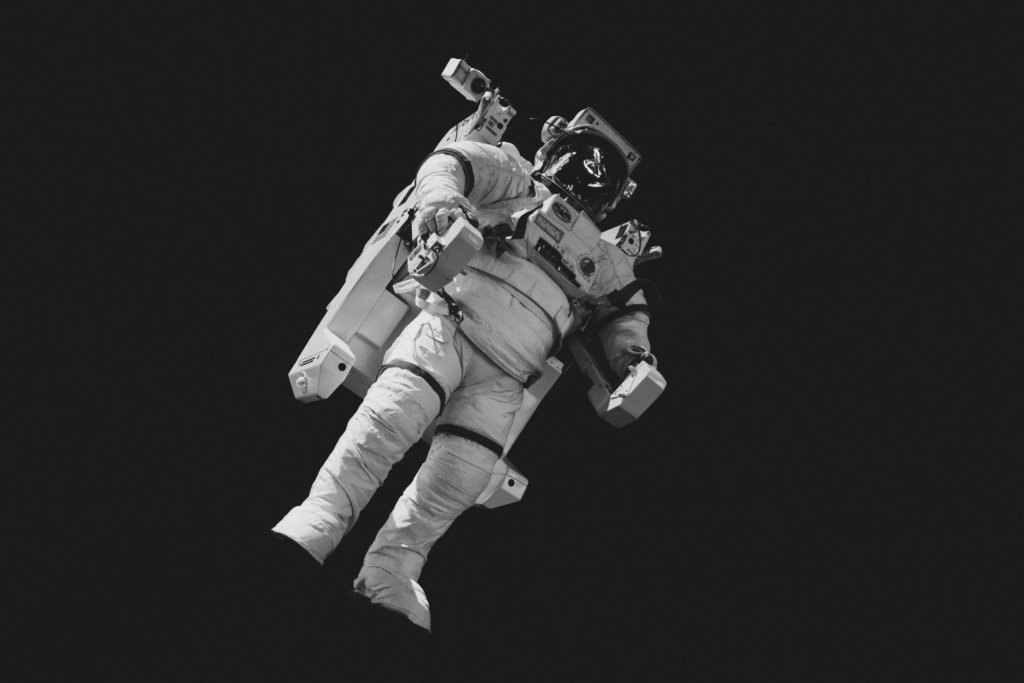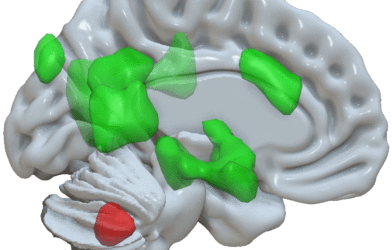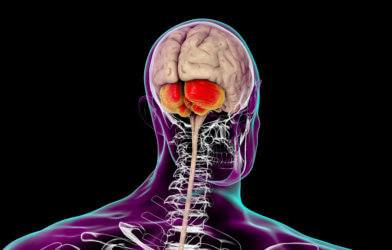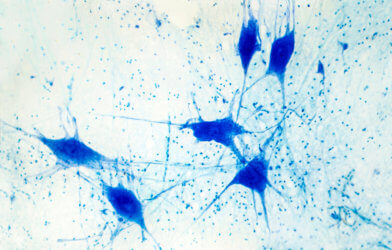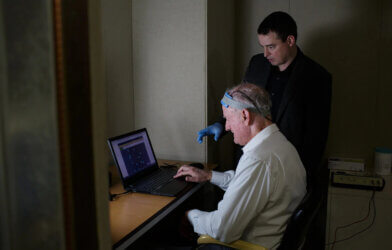There are many observed long-term effects of space travel on the human body. These include conditions such as bone loss, cosmic radiation, and muscle weakness. Researchers at MUSC Health have found an important yet underserved area of space to study: the brain and gravity’s effect on eyesight.
Even as the transformation of space travel unfolds in real-time, thoughts of colonization on far-away planets still feel like a science fiction film. Scientists, however, are beginning to prepare for space settlement in unexpected ways.
In their study, researchers looked at Spaceflight-Associated Neuro-Ocular Syndrome (SANS) and compared brain scans before and after spaceflight. The longer astronauts stay in space, the more they’ve reported blurry vision and eyesight problems when they return to earth, according to Dr. Mark Rosenberg, a neurology resident at MUSC Health and a researcher on the paper.
“It’s gotten to the point where astronauts actually carry extra pairs of glasses when they go into space,” Rosenberg explains in a statement. “They know that their vision is going to be deteriorating up there, and they’ve even started calling them Space Anticipation Glasses. And, in fact, depending on how you define it, it affects about 70% of astronauts.”
With SANS, astronauts return to Earth with altered vision clarity and struggle to distinguish between shapes. The globes of their eyes flatten, parts of their retinas show injury and their optic disks swell. While some astronauts recover within a few weeks of returning to Earth, others may take much longer.
In addition to preparing for space colonization, Donna Roberts, M.D., an MUSC Health neuro-radiologist and the primary investigator for this research paper, says studies like this one also help doctors learn more about conditions that affect people on earth. “We can learn more about the role gravity plays on fluid around the brain, for instance,” she explains. “And it gives us insight into how disorders of cerebrospinal fluid circulation affect patients not just in space but also here on earth.”
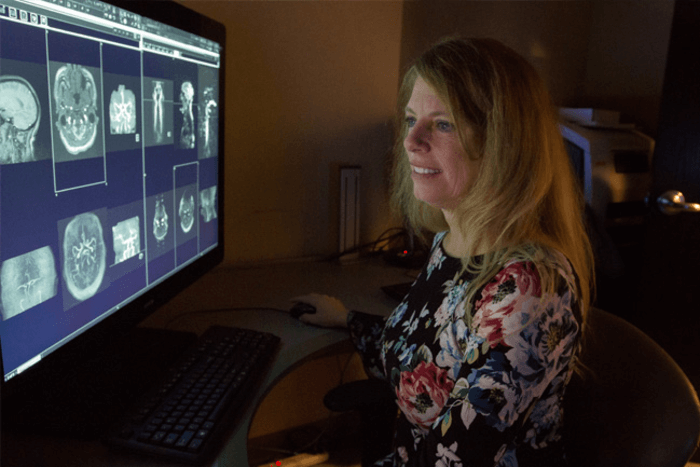
Using MRI images, Roberts and her team were able to observe the dural venous sinuses, which serve a vital role in blood circulation and should not stretch or change. With SANS, however, blood volume increases, and the dural venous sinuses enlarge. NASA has deemed SANS one of its highest research priorities, according to Roberts. The results of this paper move that research forward by providing insight into what happens to the brain and eyesight in space.
“If we’re planning on setting up a colony in space, we’re going to have to understand how gravity affects the entire human body,” Roberts says. “And that includes the brain.” Next, Roberts and Rosenberg will look at the ways SANS may differ between genders. Without being able to perform an MRI in space, Roberts says it’s difficult to pinpoint when exactly the change in the dural venous sinuses occurs, so she is also looking into a mobile MRI machine to perform scans in space to better understand how the condition develops.
“As we head into this new era of human spaceflight, SANS remains one of our biggest problems and obstacles,” Roberts said. “But we are making progress in understanding the condition.”
This study is published in JAMA Network Open.
Article written by Rhonda Errabelli
